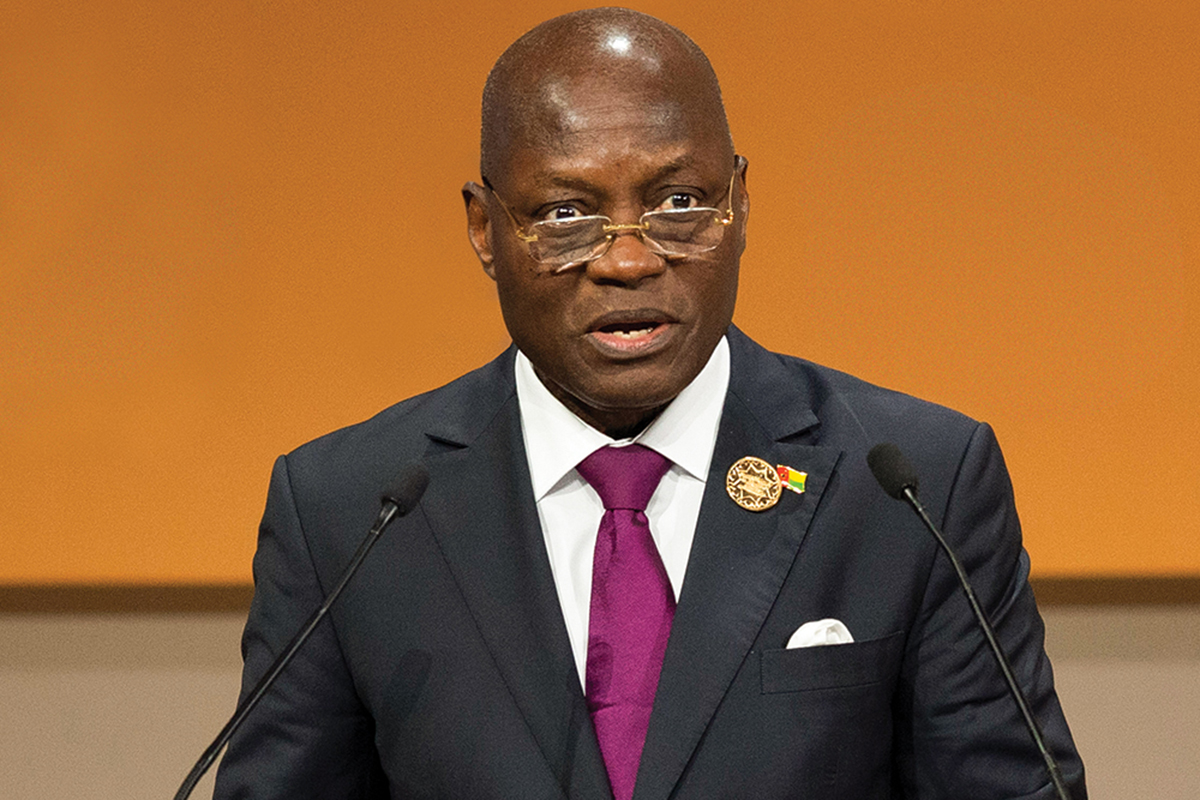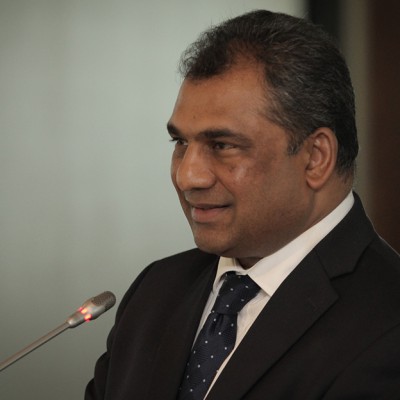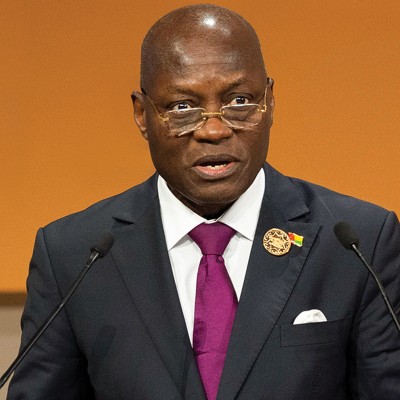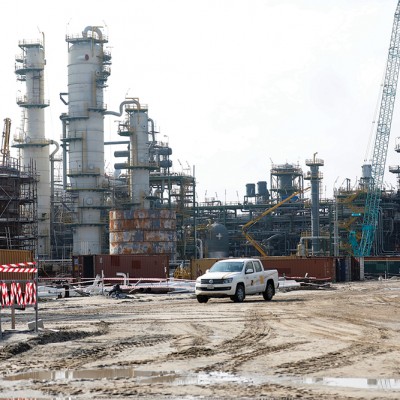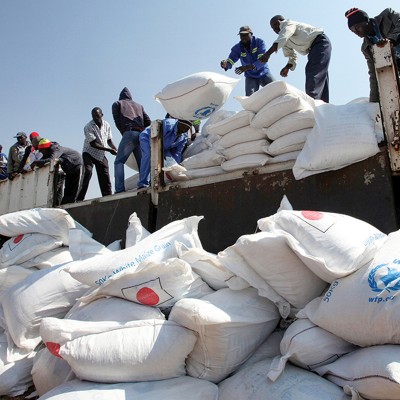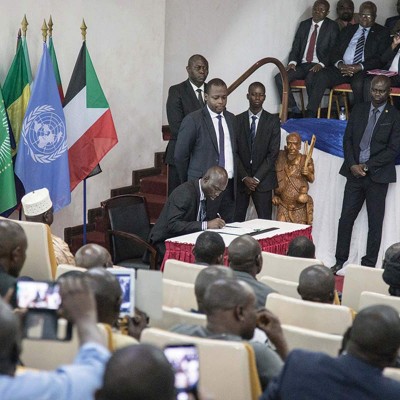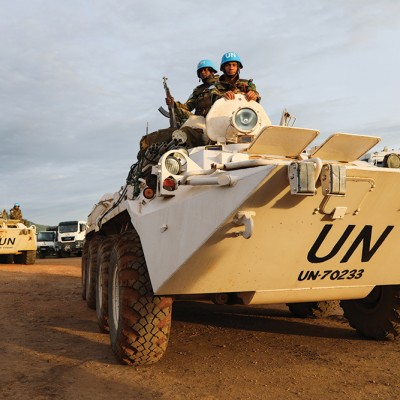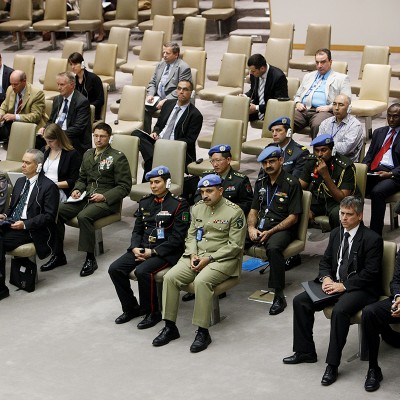Introduction
Guinea-Bissau, a former Portuguese colony in West Africa with a population of 1.8 million people,1 has been embroiled in political and institutional crises since August 2015, following the run-off presidential elections of May 2014 that produced President José Mário Vaz. The political and institutional crises had roots in certain structural factors common to most post-colonial African states: an underdeveloped economy, overdependence on foreign aid and former colonial masters, fractionalised and factionalised elites, a praetorian army serving personal interests, and general governance deficits. The case with Guinea-Bissau, however, is peculiar. It has a long history of political and institutional fragility dating back to its independence in 1974, with recurring coups and assassinations of political leaders.2 With the exemption of President Vaz, whose constitutionally mandated term of office ended on 23 June 2019, no elected president has ever completed a term of office – an indicator of the gravity of the country’s political instability.
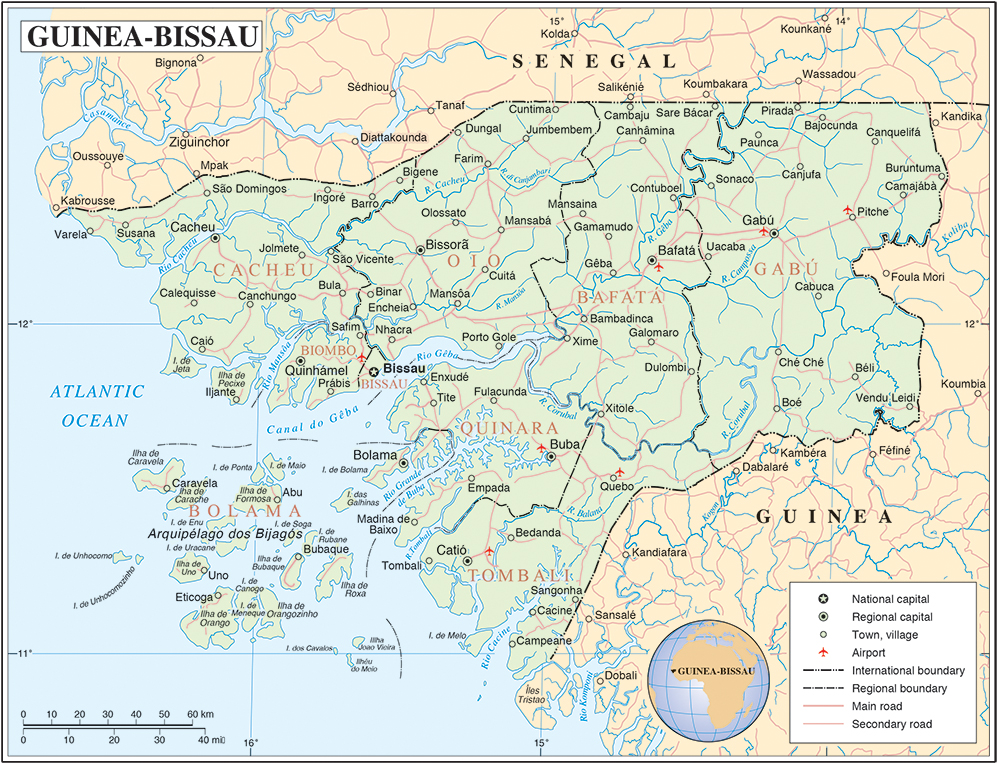
This article examines the lingering political crisis that erupted in August 2015 within the leadership cadre of the country’s governing elites, following the dismissal of Prime Minister (PM) Domingos Simões Pereira by President Vaz and the Economic Community of West African States’ (ECOWAS) sustained efforts to foster peace, political stability and harmonious relationships among the country’s governing members. It concludes by noting that although ECOWAS and friends of Guinea-Bissau have a responsibility to assist the country in finding enduring solutions to its political and institutional crises, the primary responsibility rests with the country’s political and military leaders and their resolve to collectively act in the best interest of the country.
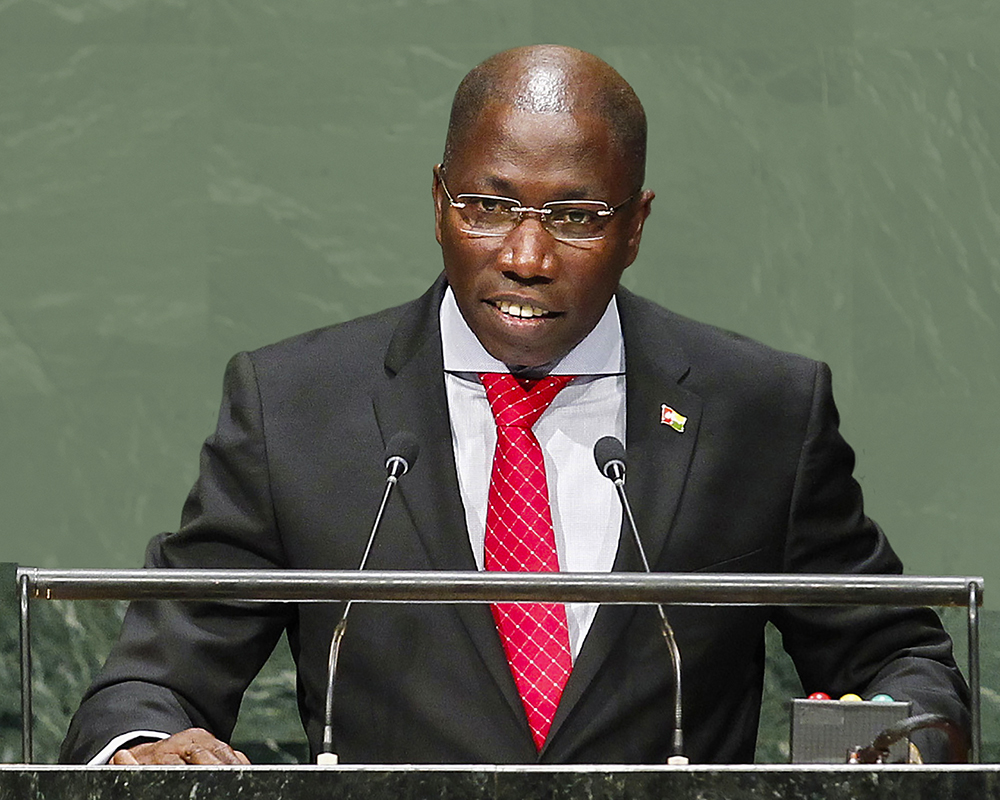
Political Crisis under President Vaz and Efforts to Broker Peace by ECOWAS
Guinea-Bissau returned to constitutional order in 2014, following years of political fragility occasioned by military coups and political assassinations, with the election of Vaz as president. Pereira was appointed PM by the president. Both individuals belonged to the Party for the Independence for Guinea and Cape Verde (PAIGC), a party that has dominated the political landscape of the country since its formation in 1956. But the relationship between Vaz and Pereira deteriorated, leading to renewed political and institutional crises. Since assuming the presidency and the holding of parliamentary elections on 10 March 2019, Vaz has worked with seven PMs3 – an indicator of the degree of political instability that characterises his administration. On 12 August 2015, Pereira – who doubled as leader of the ruling party – was dismissed as PM by the president over what appears to be a personality clash.4 Following Pereira’s dismissal, the president requested PAIGC to nominate a replacement, but the party presented Pereira again and insisted that in accordance with its statute, the party leader is to be appointed PM. The nomination was rejected by the president; instead, he appointed the third vice president of PAIGC, Baciro Djá, thus triggering a series of political crises, with PAIGC approaching the Supreme Court for adjudication. On 8 September 2015, the Supreme Court ruled Djá’s appointment unconstitutional.5 The crisis then assumed a scale that necessitated ECOWAS’s intervention.
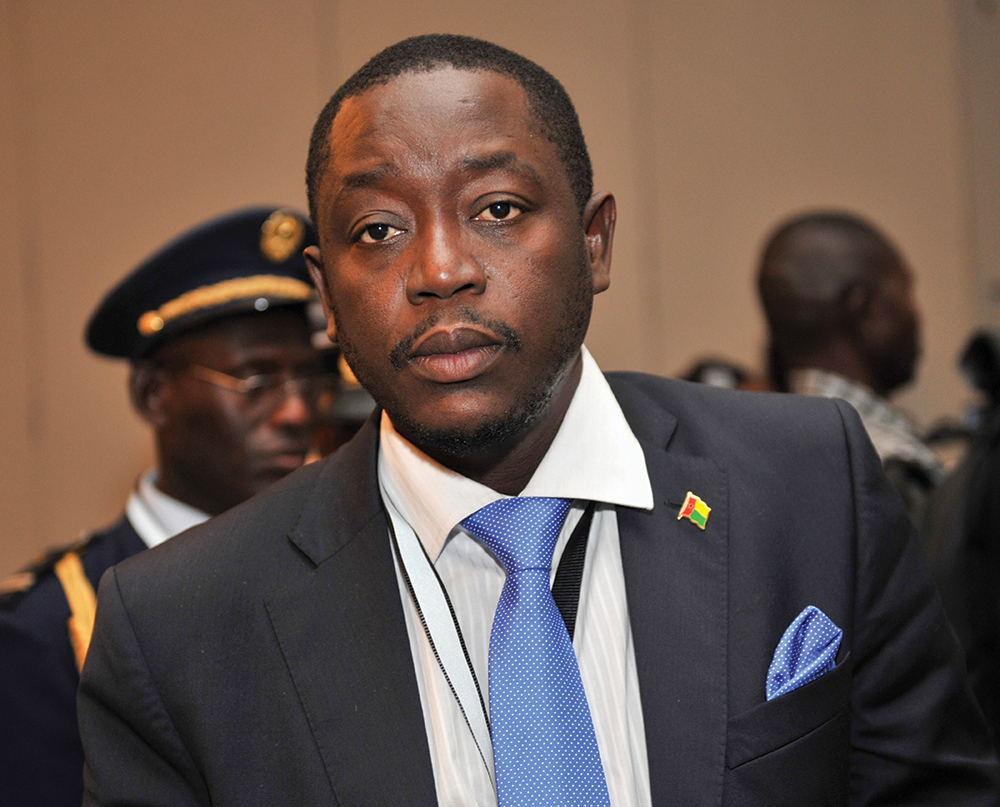
On 21 August 2015, in his capacity as chairperson of the ECOWAS Regional Contact Group on Guinea-Bissau, President Muhammadu Buhari of Nigeria appointed former Nigerian president, Olusegun Obasanjo, as special envoy, mandated to engage the disputing parties to work out a solution to the crisis. Between 14 and 18 September 2015, following the Supreme Court’s pronouncement, Obasanjo visited Bissau and his mediation efforts yielded the appointment of Carlos Correia as PM. In forming his government, on 2 October 2015 Correia submitted a list of cabinet nominees to Vaz, which included Pereira. The president rejected the proposed cabinet, thus triggering another round of crises that necessitated a second mediation mission by Obasanjo to Bissau, from 9 to 11 October 2015, to hold further negotiations with key actors, with the specific focus on negotiating a list of cabinet ministers. Consensus was reached on the list, which then excluded Pereira. With the new cabinet formed, the 2016 budget and programme were presented to parliament for ratification – but in a new twist of events, 15 members of parliament (MPs) from the PAIGC, perceived to be loyal to the president, attempted blockage of its passage. With this action, the 15 MPs were expelled from the PAIGC by the party’s leadership, thus re-igniting hostilities and putting the country’s fledgling democracy in serious jeopardy. On 10 February 2016, Obasanjo embarked on a third mission to seek a political solution to the crisis. This was followed by a fourth mission on 2 May 2016, to renew earlier attempts at resolution of the crisis. Vaz dismissed Correia and reappointed Djá as PM on 27 May 2016. The appointment was rejected by the leadership of the PAIGC, thus deepening the crisis.
With growing political hostility having a negative impact on governance, ECOWAS, at its 49th Ordinary Summit of Authority of Heads of State and Government on 4 June 2016, “urged all political stakeholders to engage in dialogue with a view to resolving the crisis and commended the professionalism of the army for not involving itself in the political impasse and encouraged it to continue in that direction.”6 The summit “designated a Presidential Mission comprising Guinea, Senegal and Sierra Leone to meet and conduct discussions with those involved in the political crisis… in order to better assess the current political situation.”7 The summit equally extended the ECOWAS Mission in Guinea-Bissau (ECOMIB) – which has played a stabilising role, despite the infighting among political actors – by one year.
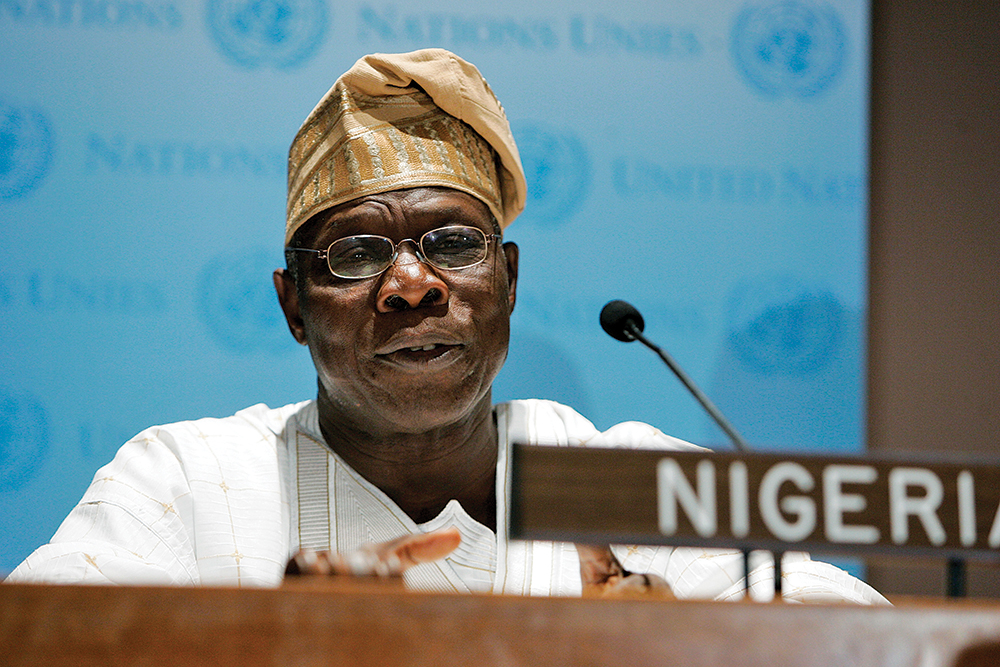
Pursuant to the directives of the Authority, a ministerial delegation comprising the ministers of foreign affairs of Liberia and Sierra Leone, the minister of state and secretary general of the presidency of the Republic of Guinea, and the president of the ECOWAS Commission, were in Bissau from 7 to 8 September 2016 to hold initial consultations with political stakeholders. This lead to the adoption of a six-point roadmap for the resolution of the conflict. On 10 September 2016, a presidential mission – comprising President Alpha Conde of Guinea and ECOWAS mediator for Guinea-Bissau and President Ernest Bai Koroma of Sierra Leone – joined the mission. From 11 to 14 October 2016, Conde hosted Bissau-Guinean political stakeholders, including representatives of religious groups and civil society organisations, in a four-day political dialogue in Conakry, Guinea, resulting in the signing of the Conakry Accord of 14 October 2016.8
Monitoring the Implementation of the Accord
The Conakry Accord provided for:
- consensus on the choice of a PM who has the confidence of the president of the republic. The PM should be in office until the 2018 legislative elections;
- the formation of an inclusive government, based on an organogram agreed upon by all political parties in the National Assembly, in line with the principle of proportional representation;
- the possibility of appointing independent prominent figures and civil society leaders to the inclusive government;
- the inclusive government to implement a programme prepared by a national roundtable dialogue within 30 days following the appointment of the PM;
- compliance with the existing principle for the appointment of senior officials of the republic;
- preparation and adoption, by the national roundtable dialogue, of a stability pact signed by key political and social stakeholders, and structured around the principles of:
- accountability and transparency in institutional decision-making,
- constitutional reform aimed at establishing stable relations between the executive, the legislative and the judiciary,
- reform of the electoral law for the organisation of legislative and local elections in 2018,
- new political party law, including public funding of political parties on the basis of their representation in the National Assembly,
- defence, security and justice sector reform, and
- implementation of a development programme in line with vision “Terra Ranka”;9
- ECOWAS, the African Union (AU), the Community of Portuguese Speaking Countries (CPLP), the United Nations (UN) and the European Union’s (EU) support for the development, implementation and monitoring of the stability pact, in particular through the provision of high-level expertise as well as other substantial financial resources and logistics;
- establishment of a three-level monitoring and evaluation framework to ensure the stability of the process:
- at the level of the ECOWAS Council of Ministers,
- at the level of the ECOWAS Commission, in conjunction with international partners, and
- at the level of the mediator, who will report to the ECOWAS Authority of Heads of State and Government;
- constitutional reform, which will be conducted as part of a nationwide consultation, taking into account existing review structures. ECOWAS and the UN will provide high-level constitutional experts; and
- the unconditional reintegration of the 15 radical MPs into PAIGC, albeit in consonance with existing texts10 within PAIGC.
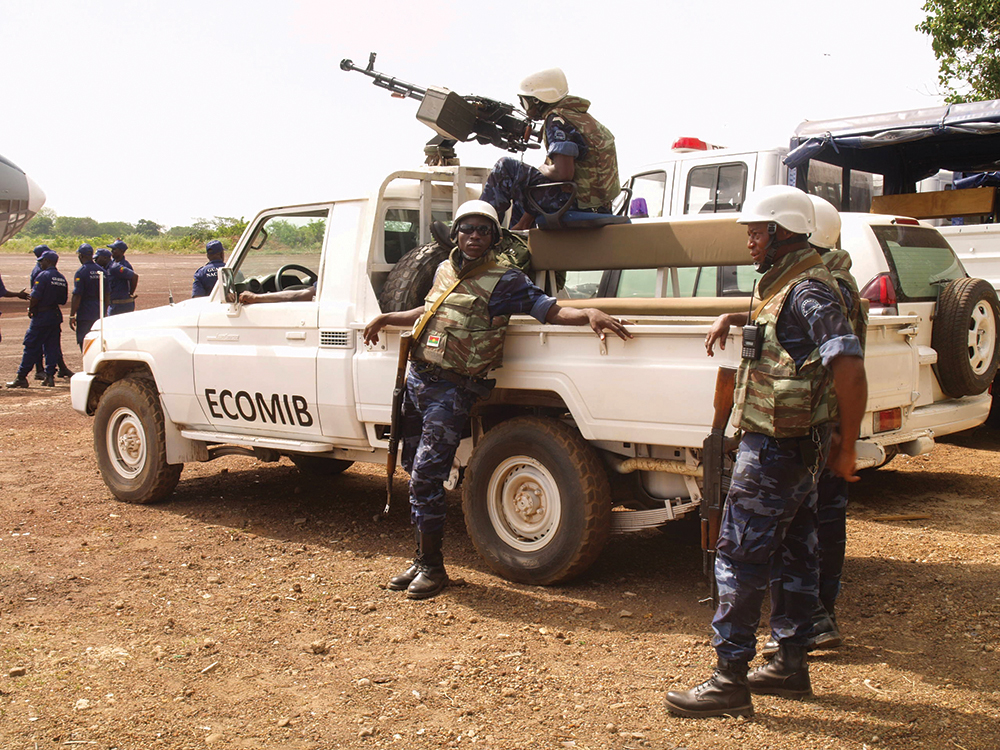
All parties that signed the accord undertook to work in good faith towards its successful implementation, but this was far from the reality, as its implementation became ensnared in controversy over the choice of a consensus PM – the first item on the accord. Another controversy that militated against the smooth implementation was the meaning of the text in the content of the Conakry Accord translated into Portuguese, which was later seen to be inconsistent with the original French language used in drafting the accord. The president had appointed Umaro Embaló Sissoco as new PM on 18 November 2016, but this was objected by the PAIGC, claiming a lack of consensus on his candidacy. With sustained opposition to the appointment of Sissoco by the leadership of the PAIGC and the increasing breakdown of trust necessary for implementing the accord, ECOWAS, at its 50th Ordinary Summit of the Authority of Heads of State and Government held in Abuja on 17 December 2016, emphasised the importance of dialogue and reaffirmed its deep concern over the protracted crisis, urging Vaz and all parties to comply with the explicit contents of the Conakry Accord.11 For a second time, the Authority commended the non-interference of the army in the political crisis and strongly urged it to continue in the like manner, while reiterating the planned withdrawal of ECOMIB, effective 30 June 2017.12 ECOMIB’s withdrawal would lead to the deterioration of security, yet the political actors were unperturbed and remained stuck in their positions.
The leadership and MPs of PAIGC sustained its opposition to the appointment of Sissoco, whilst the group of 15 expelled MPs from PAIGC, in alliance with the Party for Social Renewal (PRS) (the main opposition party), backed his appointment.13 Against the backdrop of possible complete government breakdown, the ECOWAS Council of Ministers Monitoring Committee on the Accord embarked on a mission to Bissau from 23 to 24 April 2017 to assess the situation and report back to the Authority. After wide consultations, the delegation urged all stakeholders to act in good faith in seeking to strictly implement the Conakry Accord, with the appointment of a PM with the consensus of all stakeholders within 30 days – the failure of which would result in a recommendation to the Authority to consider the adoption of sanctions targeting individuals and entities obstructing strict compliance with the accord. The ultimatum elapsed, with stakeholders unable to agree on a consensus PM.
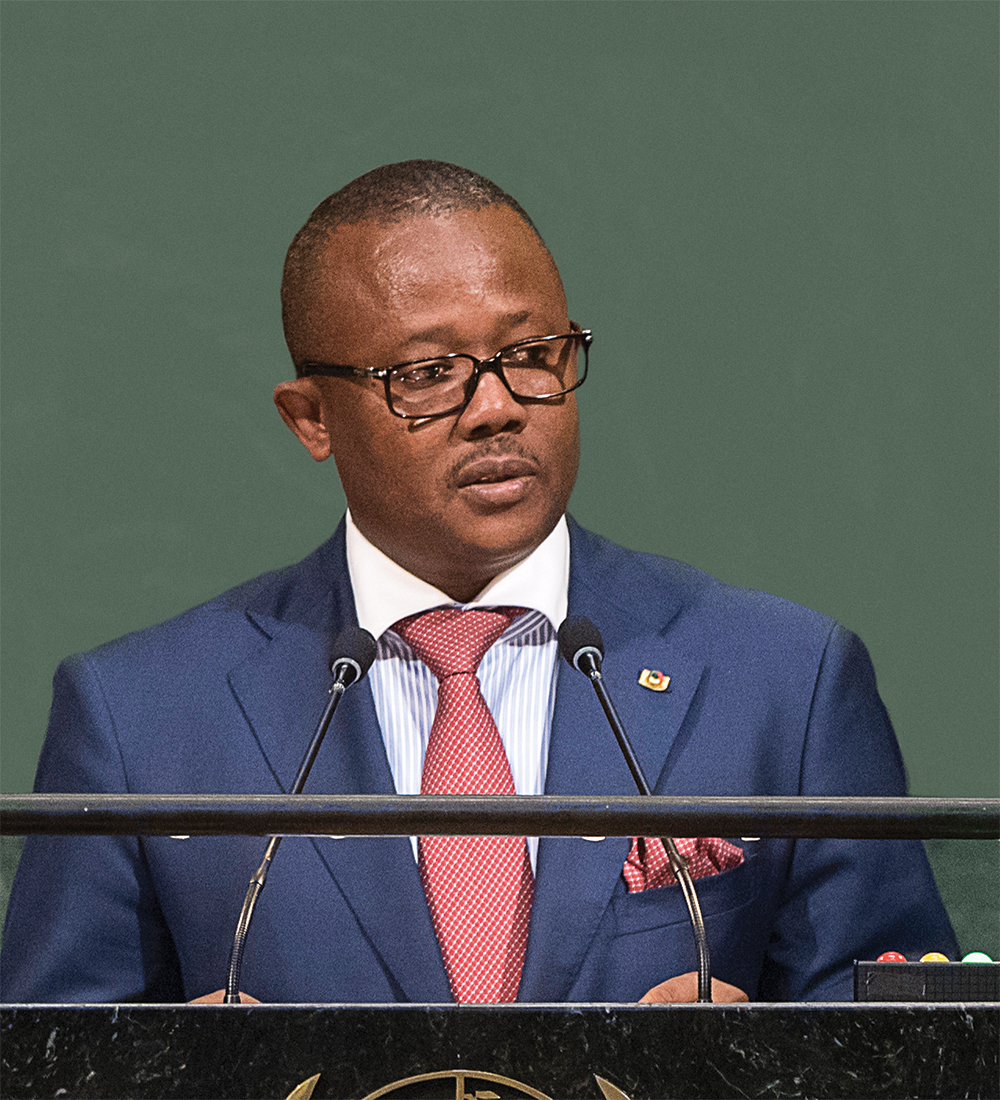
Mindful of the dire security implications of withdrawing ECOMIB, and to give another opportunity for the Bissau-Guinean political stakeholders to hold direct talks, especially on the appointment of a consensus PM, the ECOWAS Authority, at its Summit of 4 June 2017 in Liberia, extended the mandate of ECOMIB for three months – and, for the first time, affirmed its determination to institute targeted sanctions against all those who obstructed the smooth implementation of the accord, if warranted. It once again commended the army on its non-interference in the political impasse, urging it to continue in the like manner.14 By October 2017, it was apparent that the stakeholders had again failed to reach an agreement on a consensus PM. The Ministerial Monitoring Committee embarked on a mission to Bissau from 2–3 December 2017 to assess the situation once again. The committee submitted its report to the 52nd Summit of Authority of Heads of States and Government meeting in Abuja, Nigeria on 16 December 2017. At this summit, the Authority bemoaned the lack of progress in the implementation of the Conakry Accord and consequently entrusted Conde, the ECOWAS mediator for Guinea-Bissau, and President Faure Essozimna Gnassingbé Eyadéma of Togo and chairperson of the ECOWAS Authority with the responsibility of holding talks with all Bissau-Guinean stakeholders within a month to resolve the impasse, failing which individual and collective sanctions would be imposed on all those who obstructed the implementation of the accord. The summit thereafter called on the international community – notably the UN, AU and all sub-regional organisations – to support ECOWAS in the application of the sanctions.15 In response to the directive of the Authority, on 30 January 2018, Vaz appointed Augusto Artur Da Silva as PM, but this appointment was again rejected by the leadership of the PAIGC, claiming lack of consultation and consensus.
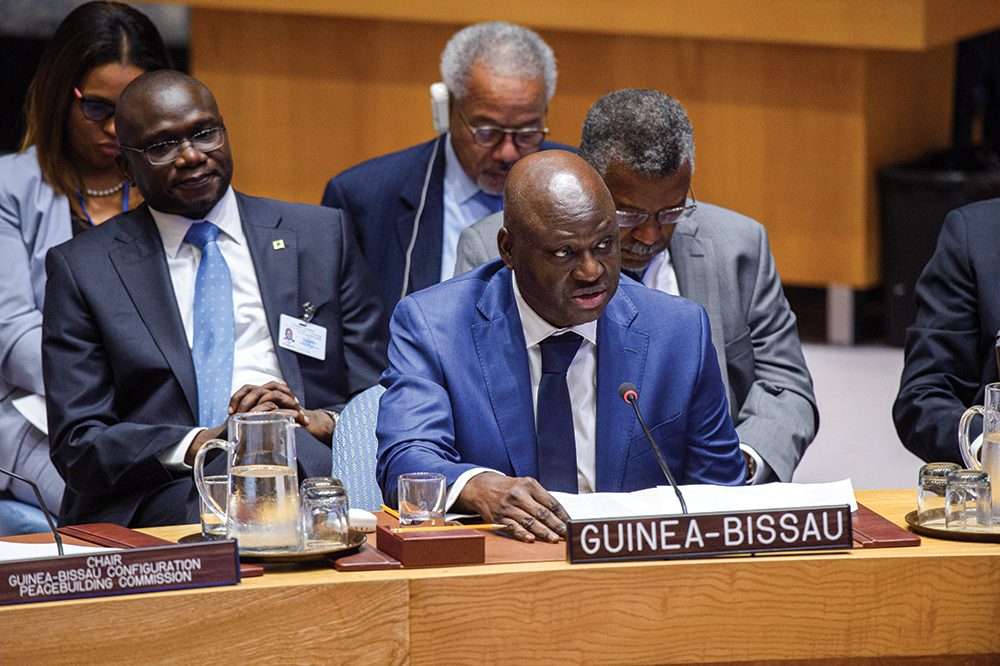
On 27 January 2018, during the 30th Ordinary Summit of the Assembly of Heads of State and Government of the African Union in Ethiopia, the ECOWAS Heads of States and Government held a meeting to review political developments in Guinea-Bissau. Noting the failure by Vaz to appoint a PM who had the consensus of all stakeholders, they dispatched the Ministerial Monitoring Committee to Guinea-Bissau from 31 January to 1 February 2018 to hold further consultations with political stakeholders. The delegation noted the failure by the leadership of Guinea-Bissau to appoint a consensus PM. Acting on the report of the committee, the ECOWAS Commission announced the imposition of individual and collective sanctions, effective from 1 February 2018, on all persons or organisations hampering the process to end the crisis.16 With sanctions in full effect and taking their toll on the affected individuals, consultations between the Guinea-Bissau leadership and all relevant stakeholders to the crisis intensified. In an Extraordinary Summit of 14 April 2018, Vaz informed the ECOWAS Authority on the possibility of finally having a consensus PM in a few days. On 17 April 2018, by presidential decree, the appointment of Aristides Gomes as consensus PM was announced. Parliament was reopened on 19 April 2018, with parliamentary elections set for 18 November 2018. The lifespan of the parliament was extended to accommodate the new date, following which the election management body was constituted to organise the scheduled elections. Due to logistical and financial challenges, the elections were pushed further and held on 10 March 2019, with support from ECOWAS and other partners.
Political Realignments and the Re-enactment of an Old Order
In the lead-up to the parliamentary elections on 10 March 2019, there were alignments and realignments, with the group of 15 expelled MPs from the PAIGC forming a new political party, the Movement for a Democratic Alternative G-15 (MADEM G.15). Twenty-one political parties contested the 102 parliamentary seats, with the PAIGC securing 47, MADEM G.15 with 27, Party for Social Renewal (PRS) with 21, Assembly of the People United (APU-PDGB) with 5, New Democratic Party (PND) with 1 and Union for Change (UM) with 1. Although the PAIGC lost 10 seats, costing it an absolute majority, a post-election negotiated pact with the APU-PDGB, PND and UM gave the PAIGC-led coalition a six-seat majority in parliament.
The new parliament was inaugurated on 18 April 2019, with the PAIGC-led coalition expected to form a new government. A power tussle between the PAIGC-led coalition and the MADEM G.15/PRS parties over the composition of the Bureau of the Parliament – the organ responsible for managing parliamentary affairs – became a new source of conflict, stalling the prompt formation of the government.17 In a swift response to the stalemate, on 30 April 2019, an ECOWAS ministerial delegation comprising Nigeria’s foreign affairs minister, Geoffrey Onyeama; minister of state and secretary-general of the presidency of the Republic of Guinea, Naby Bangoura; and the president of the ECOWAS Commission, Jean-Claude Kassi Brou, visited Guinea-Bissau to hold consultations with the various stakeholders, including Vaz, Gomes, the president of the National People’s Assembly, Cipriano Cassama and the various groups represented in the parliament. Noting that an impasse was not unexpected in parliament, the political actors were urged to finalise the composition and installation of the Bureau of Parliament in conformity with the outcome of the elections as expressed by the people, while reiterating the readiness of ECOWAS to support the government to be formed in resolving the protracted crisis and restoring peace and development to the country.18
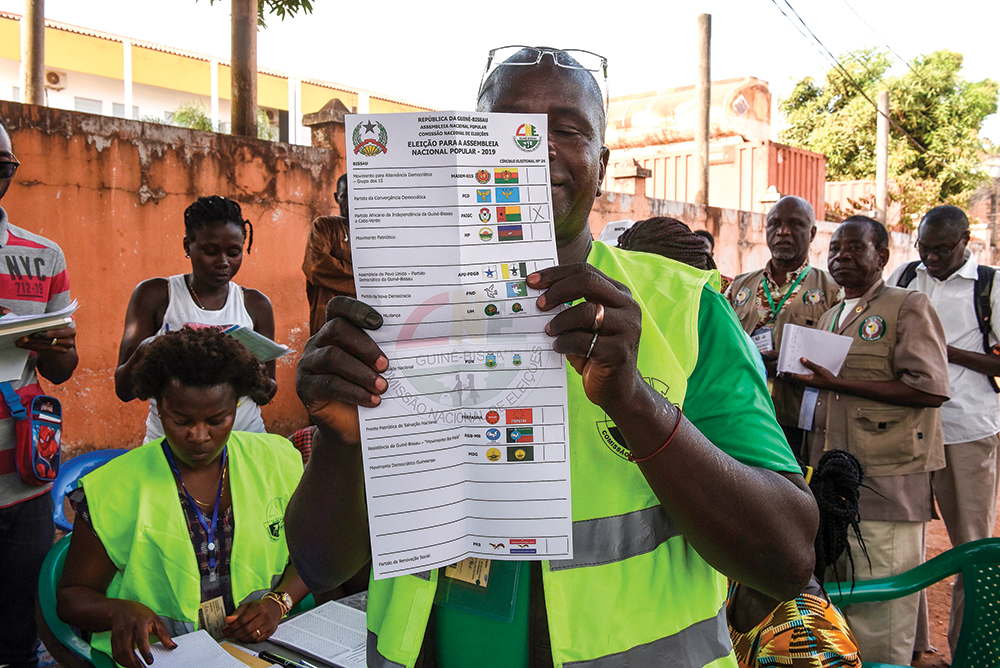
On 17 June 2019 President Vaz requested PAIGC’s nomination for the position of Prime Minister and the party submitted the name of its leader, Domingos Pereira. Vaz rejected this and asked the party for another nominee. The disputing parties held on to their positions prompting a second visit to Bissau by the ECOWAS Ministerial Monitoring Committee on 19 June 2019. In the course of their consultations with President Vaz and other political stakeholders, the Ministerial Committee again expressed concerns over the climate of political uncertainty in the country and urged all political actors to engage in inclusive dialogue aimed at resolving the impasse, with the appointment of a Prime Minister on or before 23 June 2019 (the last day of the constitutional term of office for President Vaz). On 23 June 2019 Vaz announced the reappointment of Aristides Gomes as Prime Minister. Taking into account the end of tenure for President Vaz on 23 June 2019, the absence of a new government, and on the basis of the consensus reached by political stakeholders, the ECOWAS Authority, at its 55th Ordinary Session held in Abuja, Nigeria on 29 June 2019, took far-reaching decisions towards the resolution of the impasse, which includes amongst others;
- President Vaz to sign the decree of nomination of the government before 3 July 2019, on the basis of the proposition made by the Prime Minister,
- the government will, amongst other things, engage in the preparation of the presidential election to be held on 24 November 2019,
- a new Attorney-General to be nominated on the basis of consensus before 3 July 2019 and,
- President Vaz to stay in office until the next presidential election while government affairs will be fully conducted by the newly-formed government in line with the Guinea Bissau19
A new government was formed on 3 July 2019 with the exception of the appointment of a new Attorney-General which remains a source of dispute among the political stakeholders. There also remains disagreement over the constitution of the Bureau of Parliament.
Conclusion
The ECOWAS Authority affirmed its confidence in the Conakry Accord as a solution to the prolonged political and institutional crisis in Guinea-Bissau, and urged all stakeholders to strictly respect and comply with the contents of the accord.20 The UNSC reiterated the same.21 Full implementation of the accord for the most part of the last three years was stalled over disagreement on the appointment of a consensus PM – the first item in the agreement. A consensus PM was eventually appointed after much spirited engagement with the various stakeholders by ECOWAS, paving the way for parliamentary elections. It was unpredictable that disagreement over the appointment of a new Prime Minister and the composition and installation of the Bureau of Parliament would hamper the prompt formation of a government. With the new government now formed by the PAIGC-led coalition, the country is facing the daunting challenge of organising the 2019 presidential election. It is, however, imperative to note that for other items of the Conakry Accord to be fully implemented – in particular, constitutional reform, defence, security and justice sector reform and development programmes – Bissau-Guinean political actors must exhibit statesmanship, prioritising the interests of the nation above party, groups and personal interests. Trust-building among political stakeholders is critical. The Guinea-Bissau leadership and all political stakeholders must be mindful of likely support fatigue by the international community.
The establishment of a three-level monitoring and evaluation framework in the accord to follow up on its implementation is quite commendable. The presence of ECOMIB helped to stabilise the country, ensuring protection for key government personnel and critical installations. The ECOWAS Authority’s deliberate act of commending the professionalism of the army and urging it to maintain neutrality and non-partisanship was impressive, especially against the backdrop of a history of military coups and assassinations. Sustained engagement with Bissau-Guinean stakeholders by ECOWAS and its partners will be critical for lasting peace, stability and development to be restored in the country.
Endnotes
- The World Bank (2019) ‘The World Bank in Guinea’, Available at: <https://www.worldbank.org/en/country/guineabissau/overview> [Accessed 3 May 2019].
- Ibid.
- The prime ministers in order: Domingos Simões Pereira (2014–20 August 2015); Baciro Djá (20 August–17 September 2015); Carlos Correia (17 September 2015–12 May 2016); Baciro Djá again (27 May–18 November 2016); Umaro Cissoco Embaló (18 November 2016–16 January 2018); Artur Da Silva (30 January–16 April 2018); Aristide Gomes (17 April 2018 to date).
- The personality clash between Vaz and Pereira could be inferred as the main reason that stalled the formation of a new government after the 10 March 2019 parliamentary As Pereira remains the leader of the PAIGC, he would normally, in accordance with the statute of the party, be nominated as PM, and the president was opposed to appointing him PM.
- BBC News (2015) ‘Guinea-Bissau’s “unconstitutional” PM Baciro Dja resigns’, 9 September, Available at: <https://www.bbc.com/news/world-africa-34203240>
- ECOWAS Commission (2016) Final Communique, 49th Ordinary Session of the ECOWAS Authority of Heads of State and Government held in Dakar, Senegal, 4 June 2016, 9.
- Ibid.
- ECOWAS Commission (2016) ‘Newsletter 2016’, Available at: <http://www.ecowas.int/to-end-guinea-bissua-political-crisis-ecowas-leaders-sign-final-communique>
- Vision “Terra Ranka” is Guinea-Bissau’s national priorities set forth in its 2015–2020 strategic and operational plan derived from the 2015–2025 government strategy. See Republic of Guinea-Bissau (2016) ‘Partnership Framework between Guinea Bissau and the United Nations, 2016–2020’. Available at: <https://extranet.who.int/nutrition/gina/sites/default/files/GNB%202016%20UNPAF.pdf>
- “Existing texts”, as used in the Conakry Accord, refer to the provisions of the statute/constitution of the
- ECOWAS Commission (2016) Final Communique, 50th Ordinary Session of the Authority of Heads of State and Government held in Abuja, Nigeria, 17 December 2016, 8–9.
- Ibid.
- It is instructive to note that the parliament is made up of 102 elected members, with the PAIGC having 57 seats (before the expulsion of the 15 MPs), the Party for Social Renewal (PRS) 41, New Democratic Party (PND) 1, Democratic Convergence Party (DCP) 2 and Union for Change (UM) The PND, DCP and UM were always on the side of the PAIGC. The country’s constitution has no provision for “aisle crossing” once elected into parliament, and this put the expelled 15 PAIGC MPs in a dire situation. They later formed a new party to contest the 10 March 2019 parliamentary elections.
- ECOWAS Commission (2017a) Final Communique, 51th Ordinary Session of the Authority of Heads of State and Government held in Monrovia, Liberia, 4 June 2017, 6–7.
- ECOWAS Commission (2017b) Final Communique, 52nd Ordinary Session of the Authority of Heads of State and Government held in Abuja, Nigeria, 16 December 2017, 6.
- ECOWAS Commission (2018) ‘ECOWAS Imposes Individual Sanctions for Non-implementation of the Conakry Agreement in Guinea-Bissau’, Available at: <https://www.ecowas.int/ecowas-imposes-individual-sanctions-for-non-implementation-of-the-conakry-agreement-in-guinea-bissau/>
- According to parliamentary rule, the president of the Bureau of Parliament and its first vice president should be produced by the ruling party, the second vice president by the party that secured the second-highest number of parliamentary seats, and the first secretary by the party with the third-highest number of seats. This normally meant that PAIGC produced the president and first vice president of the Bureau, while MADEM-G.15 produced the second vice president and then PRS produced the secretary. But, in honouring a post-election negotiated pact with the APU-PDGB, the PAIGC gave the position of the first vice president to the APU-PDGB, whilst at the same time opposing the candidate nominated by the MADEM-G. 15, suspicious of his past acts and perceived to be too close to Vaz, thus triggering a stalemate.
- ECOWAS Commission (2019) Press Release of the ECOWAS Ministerial Delegation to Guinea Bissau, 30 April 2019, Abuja, Nigeria.
- ECOWAS Commission (2019 b) Final Communique, 55th Ordinary Session of the Authority of Heads of State and Government held in Abuja, Nigeria, 29 June 2019, 8.
- ECOWAS Commission (2017a) cit., p. 6.
- United Nations (2019) ‘Security Council Press Statement on Guinea Bissau’, SC/13746, 26 March, Available at: <https://www.un.org/press/en/2019/sc13746.htm>

